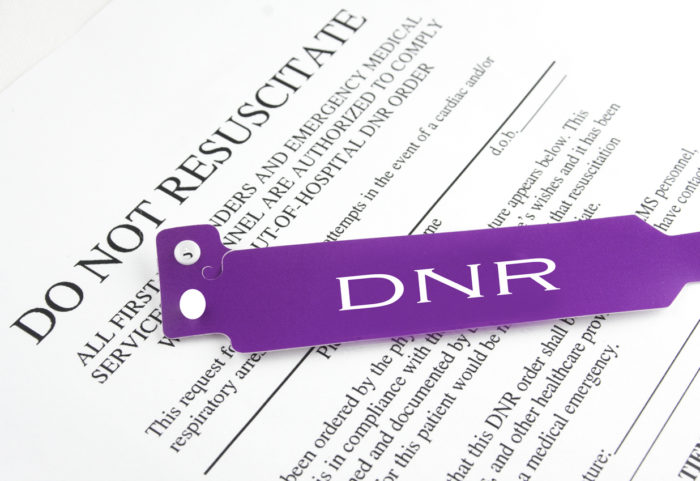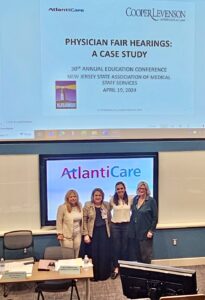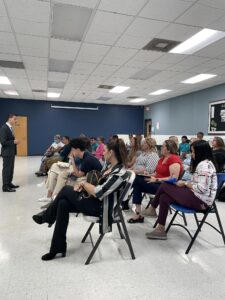In these times of pandemic uncertainty, many people are faced with difficult circumstances, including health-care professionals. Prolonging life by means of resuscitation is not a decision universally accepted. Leaving that decision to health care providers can be precarious. Hospital and health care professionals are often faced with making decisions of life or death in an instant, presumptively in favor of preserving life, with little or no opportunity to know a patient or family. Such decisions are best left to your nearest loved one.
The New York State Health Department (“NYSHD”) issued a memorandum (the “Memorandum”) last month advising emergency medical service (“EMS”) providers not to revive anyone without a pulse, despite previously being told to spend up to 20 minutes trying to resuscitate people who are experiencing cardiac arrest. The Memorandum noted that this change was “necessary during the COVID-19 response to protect the health and safety of EMS providers by limiting their exposure, conserve resources, and ensure optimal use of equipment to save the greatest number of lives.” The NYSHD has since rescinded the Memorandum, stating claiming that it does not reflect historical state standards.
During times of shared crisis, misguided information is plentiful. New York’s public health laws are difficult for lay persons to understand during times of relative normalcy. The Memorandum illustrates the confusion that health care agents and health care workers are experiencing during COVID-19. Our office has received many inquiries from clients seeking guidance in addressing the complexity of New York laws governing medical decisions, highlighting the need for proper planning, including advance directives such as a durable power of attorney and living will.
DNR Orders
While preservation of life is the presumed choice, pursuant to New York CLS Pub Health § 2994-bb, a care order not to resuscitate (“DNR Order”) may be issued when appropriate during hospitalization to take effect after hospitalization, or may be issued for a person who is not a patient in, or a resident of, a hospital. Pursuant to New York CLS Pub Health § 2994-I, a DNR Order must be included in a patient’s medical record. A DNR Order does not constitute consent to withhold or withdraw treatment, other than cardiopulmonary resuscitation (“CPR”). Under New York CLS Pub Health § 2994-dd, a person who consents to a DNR Order may at any time revoke his or her consent to a DNR Order by any act evidencing a specific intent to revoke such consent. An attending physician or attending nurse practitioner who is informed that a DNR Order has been revoked is required to record the revocation in the patient’s medical records.
New York CLS Pub Health § 2994-ee enumerates several instances when a DNR Order may be disregarded. Emergency medical services personnel, home care services agency personnel, hospice personnel and hospital emergency services personnel may disregard the DNR Order if: They believe in good faith that consent to the DNR Order has been revoked or that the DNR Order has been cancelled; or family members or others on the scene, excluding such personnel, object to the DNR Order and physical confrontation is likely. Additionally, hospital emergency services physicians, hospital emergency services nurse practitioners and physician assistants may direct a DNR Order to be disregarded if significant and exceptional medical circumstances warrant disregarding the DNR Order. Exceptional medical circumstances are not explicitly defined under New York statutory law, which creates more uncertainty.
Naming a health care agent or surrogate allows an individual to ensure that life-sustaining decisions will not be made by health care professionals who do not know the individual. Under New York CLS Pub Health § 2994-g, within a reasonable time after a person is admitted to a hospital, the hospital’s personnel must make reasonable efforts to determine if the patient appointed a health care agent or has a guardian, or if at least one individual is available to serve as the patient’s surrogate if the patient lacks or loses decision-making capacity. If a patient’s wishes regarding the administration of artificial nutrition and hydration are not reasonably known and cannot be ascertained after reasonable diligence, then the agent shall not have authority to make decisions regarding these measures. NY CLS Pub Health § 2982(2). To take full advantage of the control over your health care as permitted by law, clear, thorough, and explicit directions need to be provided, in a living will and advance health care directives, setting forth end-of-life wishes and decisions.
Pandemic conditions have magnified the present as time for introspection. Creating, revising, and updating an estate plan provides security and direction for individuals and their loved ones. We are pleased to make our services available to assist in addressing your planning needs. Please contact us with questions.
Michael Salad is a partner in Cooper Levenson’s Business & Tax and Cyber Risk Management practice groups. He concentrates his practice on estate planning, business transactions, mergers and acquisitions, tax matters and cyber risk management. Michael holds an LL.M. in Estate Planning and Elder Law. Michael is licensed to practice law in New York, New Jersey, Florida, Pennsylvania, Maryland and the District of Columbia. Michael may be reached via e-mail at msalad@cooperlevenson.com or via direct dial at (609) 572-7616.
Craig Panholzer is an associate in Cooper Levenson’s Business & Tax practice group in its Florida office. He concentrates his practice on business transactions, bankruptcy, estate planning, probate, and tax matters. Craig may be reached via e-mail at cpanholzer@cooperlevenson.com or direct dial at (954) 889-1856.
Joseph C. Mahon is a partner in our Estate Planning & Administration Group in its New York office located at 45 Rockefeller Plaza, 20th Floor, New York, New York 10111. He has, for more than 25 years, advised clients on Estate Planning, Estate, Gift and Income Tax Planning, Generation Skipping Transfer Tax Planning, State Death Taxes, Family Office Services, Family Governance, Liquidity Events, Business Succession, Insurance, Lifetime Gifts, including Valuation Discounts, Grantor Trusts, Dynasty Trusts, Family Limited Partnerships, Intra-Family Loans, Grantor Retained Annuity Trusts, Private Annuities, Qualified Personal Residence Trusts, Crummey Trusts, Trust Terminations, Trustee Succession, Trust Protectors, Pre-Nuptial Agreements, Powers of Attorney, and Health Care Proxies. He also guides clients through trust and estate litigation and dispute resolution, including contested guardianships and other issues unique to non-U.S. persons and assets. Joseph may be reached via e-mail at jmahon@cooperlevenson.com or direct dial at (646) 795-4090.









